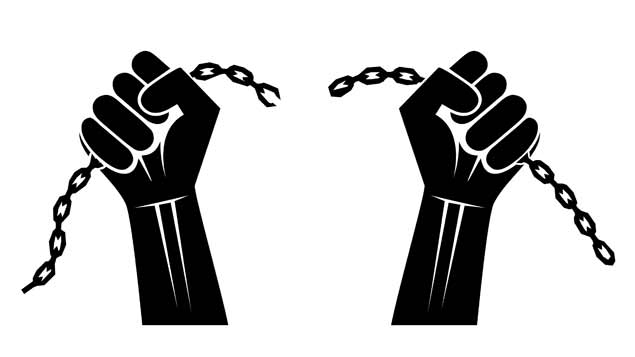Slavery remains an open-wound on the history books of many countries, cultures and communities all over the world: an issue one would hope remains in the past, but which truly seeps into our present.
As far back as 3500 BC, early civilisations were beginning to use slaves for manual labour. Those considered ‘lesser’ by high society were forced to submit to the rule of the rich elite. A life of serfdom meant a loss of humanity – as slaves became commodities to be bought and sold.
The Atlantic slave trade peaked during the 17th and 18th centuries, during a prolonged period of prosperity for many of Europe’s empires such as the French Empire, the Spanish Empire and the British Empire. During this time, West Africa became a hotspot for traders and merchants to purchase African slaves who had been kidnapped in their homelands by unruly dictators and tribe-leaders. Many of these slaves went on to be sold – at a profit – in the Americas to work on farms in this newly colonised land.
The heritage of the slave trade in Britain is most prevalent in coastal cities such as Glasgow and Bristol, which found an immense period of growth and economic prosperity as the trade took off. Even the Church of England was culpable, once owning up to 400 slaves on the island of Barbados.
Britain first set about ending the Atlantic slave trade in 1807 when parliament passed the Abolition Act after decades of campaigning by religious groups such as the Quakers and people such as William Wilberforce. Nonetheless, it would not be until 1865 that the Atlantic slave trade finally met its end in North America when the Union Army defeated the Confederates in North America. Slavery may be illegal worldwide today, but an estimated 25-40 million people are believed to be enslaved due to the international issue of human trafficking. Unjust penal labour remains prominent in many nations such as China and North Korea and Islamist extremist groups, notably the so-called Islamic State and Boko Haram, continue to enslave many women and children – most commonly for sex.
The Modern Slavery Act (2015) has come under criticism in the UK since it is not wide-reaching enough. Many activists have drawn attention to the fact that the act focuses on policing while ignoring the victims themselves: it provides limited protection for these vulnerable people who have been subjected to slavery for years. The UK’s independent anti-slavery commissioner, Kevin Hyland, estimated that only 1% of victims of modern-day slavery have ever seen their abuser brought to justice. The British government estimates that in the UK alone there are still tens of thousands of people who are victims of modern slavery. Beginning in 2010, Anti-slavery Day has taken place every year to raise awareness for the millions of men, women and children who continue to live a life of servitude and not permitted the most basic of human rights. This year, Anti-slavery Day will take place on 18 October.
Referrals to the British authorities about potential victims increased by 1/3 from 2016 to 2017 and are likely to be up again this year. Anti-slavery Day is, therefore, a valuable day to refocus our efforts on combating human trafficking not just in the UK, but worldwide. You can personally help the fight against human trafficking by simply trying to raise awareness of this modern-day issue. Fundraising will always be beneficial to charities and organisations who set out to undercover the horrors of the slave trade and support those who are suffering. Talking to your local MP about the limitations of government policy may drive them to support new and tougher reforms, truly beginning to combat modern-day
slavery.
The Purple Teardrop Campaign is focusing on preventing the grooming of young people by traffickers. They have produced several advertising strategies to help inform more of society about how to spot grooming.
Slavery and human trafficking are worldwide issues that are unlikely to ever truly be resolved, but it is important to continue to remove the apparatus for abusers to enslave members of society and get away with it. It is only with international unity that, globally, everyone can have the chance to be free.
Max Shirley

